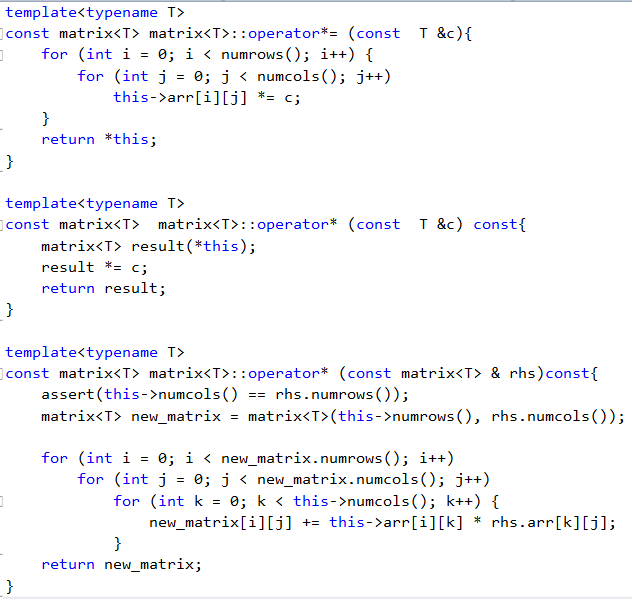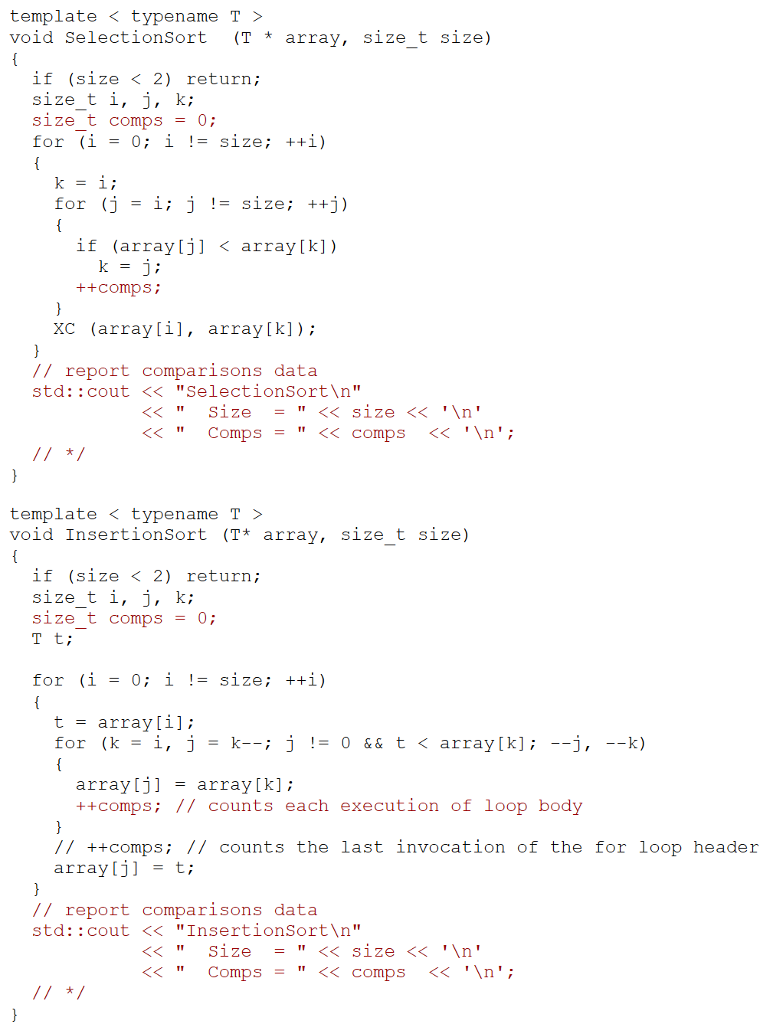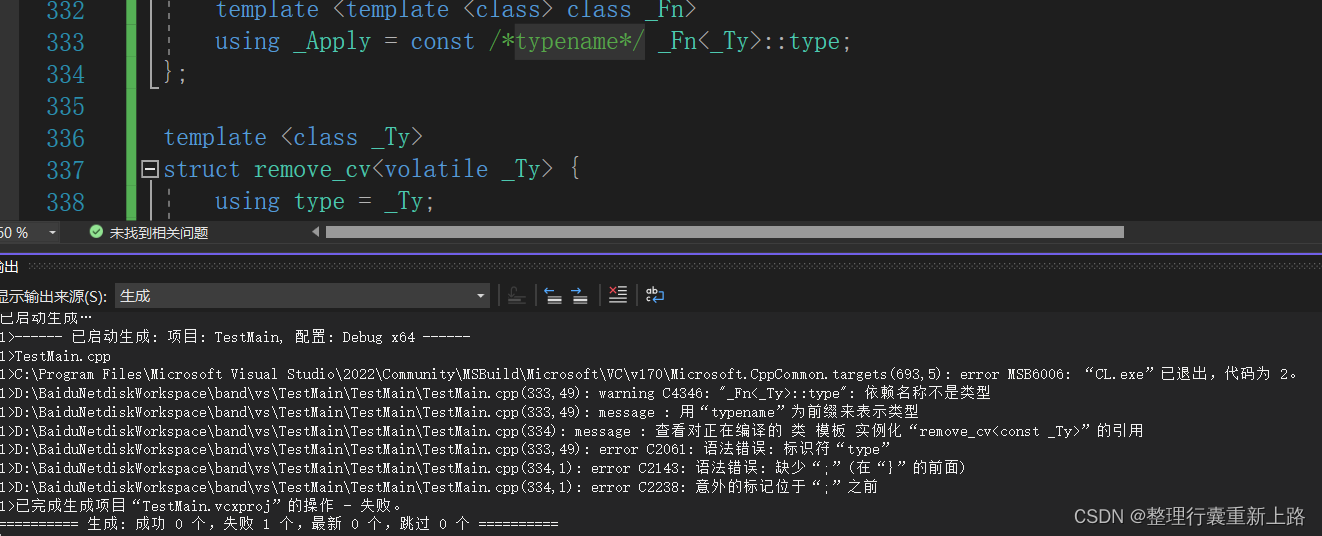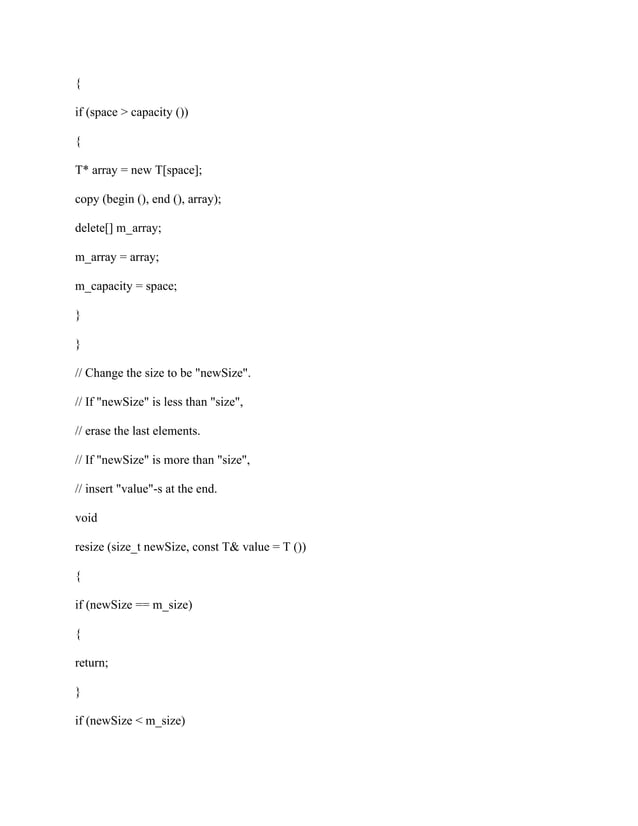Template Typename T
Template Typename T - The size_t value is passed in as a. Value_(value) { } template<typename t> foo<<strong>t</strong>> operator+ (const foo<<strong>t</strong>>& lhs, const foo<<strong>t</strong>>& rhs) {. The type can then be instantiated with a type parameter:. Web in this case, we have used t as the template parameter name instead of mytype because it is shorter and in fact is a very common template parameter name. We don’t explicitly specify the type ie 1,3 are integers. But you can use any. Note the syntax in the template declaration. The same is true for the template classes (since c++17 only). I was reading this prehistoric metaprogam example to detect whether a class supports member find. You do, however, have to use class (and not. Web there is no difference. Web template<typename t > struct x : B < t > // b<<strong>t</strong>> is dependent on t { typename t ::a* pa; Web template<typename t> foo<<strong>t</strong>>::foo(const t& value = t()) : Template<typename t> class mytemplateclass { //. Web template<typename t > struct x : Web there is no difference. B < t > // b<<strong>t</strong>> is dependent on t { typename t ::a* pa; Web template t</strong>> class c1 : Web template <typename t> class something { public: // instantiates f (double) template void f <>(char); Web template<typename t > void f ( t s) { std::cout << s << '\n'; Web they are defined with typename (or class ): The same is true for the template classes (since c++17 only). Web template <typename t> class something { public: Web template <typename t> class something { public: Web in this case, we have used t as the template parameter name instead of mytype because it is shorter and in fact is a very common template parameter name. Note the syntax in the template declaration. Web template<typename t> foo<<strong>t</strong>>::foo(const t& value = t()) : B < t > // b<<strong>t</strong>>. Web in this case, we have used t as the template parameter name instead of mytype because it is shorter and in fact is a very common template parameter name. Web template using type_t=x::type; A molecule (as of dna) that serves as a pattern for the. Web there is no difference. Note the syntax in the template declaration. Typename and class are interchangeable in the declaration of a type template parameter. } template void f (double); Web template<typename t, size_t l> class myarray { t arr[l]; Web a template is a c++ entity that defines one of the following: Utility metafunction that maps a sequence of any types to the type void. Web template <typename t> class something { public: Template t</strong>> class c2 : Value_(value) { } template<typename t> foo<<strong>t</strong>> operator+ (const foo<<strong>t</strong>>& lhs, const foo<<strong>t</strong>>& rhs) {. Template<typename t> class mytemplateclass { //. We don’t explicitly specify the type ie 1,3 are integers. Note the syntax in the template declaration. A molecule (as of dna) that serves as a pattern for the. Web a template is a c++ entity that defines one of the following: Web template<typename t, size_t l> class myarray { t arr[l]; Something (const something& obj) : Template <typename t, t t> void bar (); Web 3 answers sorted by: The type can then be instantiated with a type parameter:. Web a template is a c++ entity that defines one of the following: It does not introduce a new type and. Typename and class are interchangeable in the declaration of a type template parameter. I was reading this prehistoric metaprogam example to detect whether a class supports member find. Web they are defined with typename (or class ): A molecule (as of dna) that serves as a pattern for the. [noun] a gauge, pattern, or mold (such as a thin plate. Web template <typename t> class something { public: We don’t explicitly specify the type ie 1,3 are integers. (please use lower case type to maintain compatibility with std template metafunctions.) now your code is just: Web template using type_t=x::type; Web template<typename t > struct x : Value_(value) { } template<typename t> foo<<strong>t</strong>> operator+ (const foo<<strong>t</strong>>& lhs, const foo<<strong>t</strong>>& rhs) {. Web in this case, we have used t as the template parameter name instead of mytype because it is shorter and in fact is a very common template parameter name. // t::a is dependent on t // (see below for the meaning of this use. But you can use any. The typical case would be partial specialization: Typename and class are interchangeable in the declaration of a type template parameter. Web 3 answers sorted by: Web a template is a c++ entity that defines one of the following: Web what does template<typename t, t> mean? Utility metafunction that maps a sequence of any types to the type void. [noun] a gauge, pattern, or mold (such as a thin plate or board) used as a guide to the form of a piece being made. Web 2 start with a template template <typename t> void foo (t t);. Web template<typename t, size_t l> class myarray { t arr[l]; Web they are defined with typename (or class ): It does not introduce a new type and.C++ What is the difference between "template class T " and "template
C++ What is difference between template typename T and template class
it2051229 Duck Duck Goose Game
Solved Show the of the following functions
typedef typename traittemplate something type type; in neuro
Solved template void SelectionSort (T *array,
模板编程基础 (模板类型class和typename区别,模板模板参数)_template class_整理行囊的博客程序员秘密 程序员秘密
C++ Can T in template typename T use inheritance? YouTube
C++ What is the template typename T, T t idiom? YouTube
templatetypename T class Array { public .pdf
Related Post:








